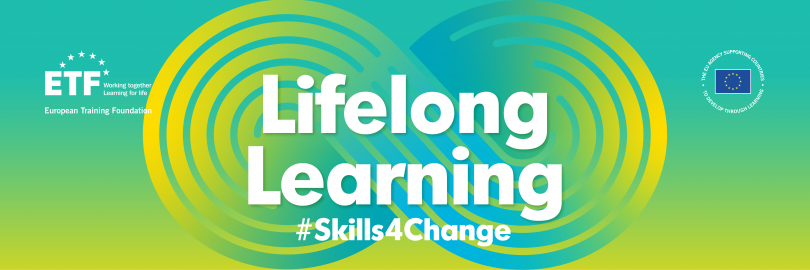
Building lifelong learning systems fit for the future
Global trends, such as digitalisation and the imperative to address climate change and environmental degradation, are transforming the world we live and work in. Digital and green technology are changing the jobs people do, and how they do them, they are changing how people live their lives and how they interact with one another and with the world around them. This calls for new mind-sets and new skill sets, not just for young people starting out in their lives and careers, but for people at all ages and stages in their lives. How can education and training system rise to the challenge of helping all people acquire the knowledge and skills they need to thrive in this new fast-changing landscape?
This was the question addressed at an international conference organised by the European Training Foundation and UNESCO, in cooperation with the International Labour Organization, the European Bank for Reconstruction and Development, and UNICEF held online in June this year. The conference, entitled "Building lifelong learning systems: skills for green and inclusive societies in the digital era", was attended by over 700 people, with an average of 600 more people viewing each of the sessions on the ETF’s social media channels (YouTube, LinkedIn, FaceBook).
The conference took stock of progress in making education and training fit for current and future challenges, showcasing examples of good practice from around the world. The event served as a a forum for reflection on international experience in building lifelong learning systems with a view to reaffirming priorities for future cooperation in the light of the global challenges and opportunities that the green and digital transition brings.
The first three days of the conference comprised an opening event enriched with key questions and ideas, followed by six sessions with themes of importance to a transforming world and an emphatic move towards lifelong learning:
Adapting to changing skills demands
The role of actors in lifelong learning systems
Monitoring and adapting to change
Supporting the green transition.
The final two days were devoted to a high-level event attended by representatives from the EU and its neighbouring countries, European and international political leaders, multilateral and international organisations, think-tanks and the private sector. Through the different sessions, participants explored what comprehensive and effective lifelong learning systems might look like, and how we can build them.
At the end of the conference, ETF Director Cesare Onestini announced the winners of the ETF Skills for the Green Transition award. The good practice example what received the most votes was a training course in Palestine delivered by the UNRWA and the German Government to train young people, especially women, to install and maintain solar energy systems.
In closing the conference, ETF Director Cesare Onestini confirmed the ETF’s commitment to cooperation in developing inclusive lifelong learning systems for green and digital futures. “Over the past five days, together with all our partners and participants we examined the practice and preconditions for bringing innovation to system change” he said. “We agreed that lifelong learning and skills development should become an integral part of economic and social transformation, and should put the learner in the centre, leaving no one behind. The ETF is fully committed to supporting these developments and moving towards a greener society.”
What is Lifelong learning?
Green and digital
Did you like this article? If you would like to be notified when new content like this is published, subscribe to receive our email alerts.